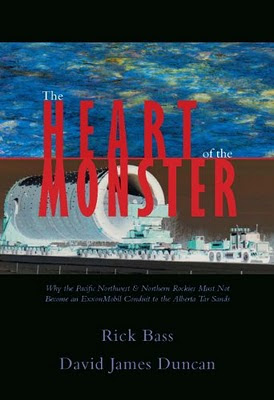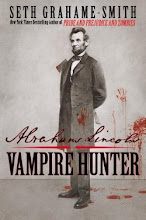My power to protest this takeover is limited to a language known as English, a feeble prospect at first glance, I admit. But for all its rough and hypocritical edges, English is a wild sonic animal, dynamic, alive, thoughtshaping. And there is an old British word that Americans creatively hijacked, commandeered, and refined to express the well-nigh inexpressible: the word "wilderness." The etymology derives from Old English "wildéor," a combination of "wild" and "deer," and in England, and in colonial times here, the stock of this word was very low. For generations of Manifest-Destiny-spewing china-tipping tea-sipping "Empire builders," the root word "wild" mean out of control, uncivilized, savage, uncultured, rude, pagan, dirty, unreliable, bloodthirsty, bad-smelling, sexually nasty, and low grade–and the innocent word "wilderness" was deemed guilty by association. (John Bunyan: Woefully I walk the wilderness of the world! Shakespeare: Jailed by a wilderness of sea.)How hard it would have been for the ExxonMobils, Shells and BPs if things had stayed this way. But the world "wilderness: underwent a transformation in America, and that transformation had done nothing but bear fruit for two centuries. It thrills me in a patriotic, darned near flag-waving way that the meaning of "wilderness" is one that Americans, as a nation, almost singlehandedly managed to transform. Starting with Thoreau, Emerson, Whitman, and the closet wild salmon-lover Emily Dickinson ("Exaltation is the going of an inland soul to sea"), achieving a more physical but still spiritiual fervor in the rhapsode John Muir, taking on "domionionists" and embracing stewardship via the fearless Rachel Carson, revealing the cathedral-like allure of mountains via the version of Ansel Adams, increasing in groundedness but maintaining reverence in the Zen hippie Gary Snyder–love of the wild has spread to the grassroots via the voices and work of more writers than I could name in a day. But even more, the love of the wild has spread through direct experience of the American wild itslef. As John Muir put it, "Nothing can take the place of absolute contact, of seeing and feeding at God's table for oneself ...The Lord himself must anoint eyes to see, my pen cannot. One can only see by loving." The inhabitants of this continent, wandering through its beauty, fell so in love with their particualr wild places en masse that they began, under the visionary (Republican!) leadership of Teddy Roosevelt, to preserve the best of our wild places as no nation ever had. What's more, when Americans tossed the old, suspicion-ridden definition of wilderness back at Europe, a lot of Europeans cried, "What ze hell were we senking? Vive le Jean Muir!", and began restoring the wilds of their own nations.What is the revamped definition of wilderness? I heard David Brower sum it up rather nicely, just before he died. He said that thanks to the lifelong influence of the wild, at age eighty-six he was still "just a gee-whiz kid." He then described his incredulity the first time he saw a wilderness spring at age six. He was so mesmerized by the sight of what he called "all the clean clear water coming up out of dirt" that, eighty years later, he still sounded gee-whizzy as he exclaimed, "I couldn't understand how it could do it!" Like so many wilderness lovers, he couldn't contain himself: "Who invented all this life?" the old man rhapsodized. "All this beauty and mystery! Every wonderful thing that's out there! How did it all happen? Not in a civilization. In Wilderness."~The Heart of the Monster David James Duncan
Monday, September 19, 2011
out of control
Saturday, September 3, 2011
The New World
Q'orianka Kilcher
Kilcher was born in Schweigmatt, Germany. Her name Q'orianka means "Golden Eagle" in Quechua. She speaks English and some German. She learned some words of the extinct Powhatan language, an Algonquian speech, for her part in the filmThe New World.
Her father is of Quechua-Huachipaeri descent from Peru. Her mother, Saskia Kilcher, is a human-rights activist of Swiss genes, born in Alaska and raised in Switzerland. Q'orianka has two brothers, Kainoa Kilcher and Xihuaru Kilcher, who both work as actors and stunt performers. Kilcher's mother's father was Ray 'Pirate' Genet, a famous Alaskan-born mountaineer, and her mother's cousin is Grammy-nominated singer Jewel Kilcher.[1]
When Kilcher was two years old, she and her mother moved to Kapaa, Hawaii, where her brother Kainoa was born. Her father, from whom she is estranged, was absent for much of her life. Growing up in Hawaii, Kilcher was inspired by the local society and started hula dancing at the age of five years. She also trained in Tahitian dance and West African, as well as ballet, Hip Hop and Modern Dance. In 1997 Kilcher won Ballet Hawaii's Young Choreographer Award at the age of seven years.
She was selected to compete at the international Tahitian Dance Competition in San Jose, California in 1996 and 1997. She performed in over fifty professional dance performances island wide. As member of the Waikiki Singers, she was chosen to be the Soprano Soloist, performing Schubert's Mass in G and Amahl and the Night Visitors by Gian Carlo Menotti. At the age of six years, Kilcher was the first child to study classical voice at the University of Hawaii with Laurance Paxton. She also studied Drama with Bill Ogilvie at the Diamond Head Theater. At six years, her mother booked her at venues as featured singer and opening act to some of Hawaii's greats, such as Willie K among others.
In 1999, her mother moved the family to California. Kilcher started to showcase her talent busking on the Third Street Promenade in Santa Monica.~Wikipedia
quantumsync
Heal The King!


































